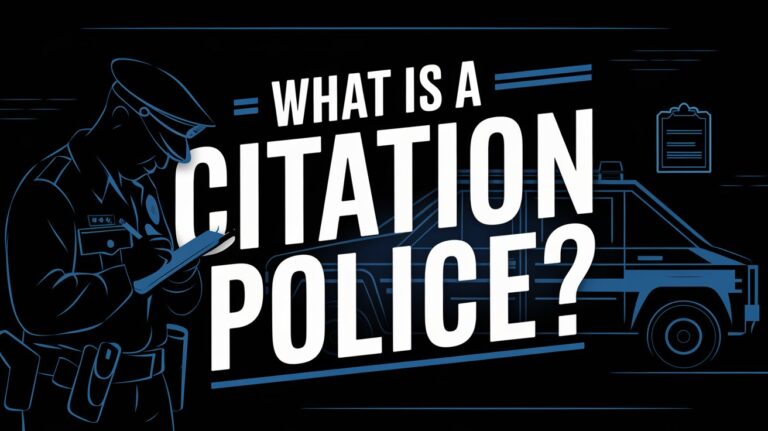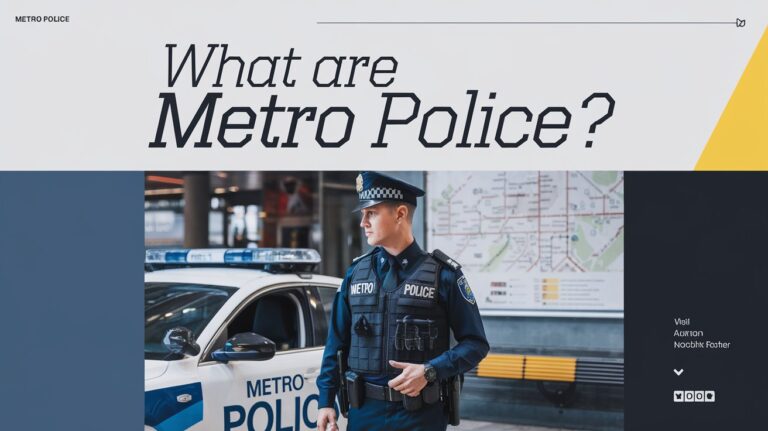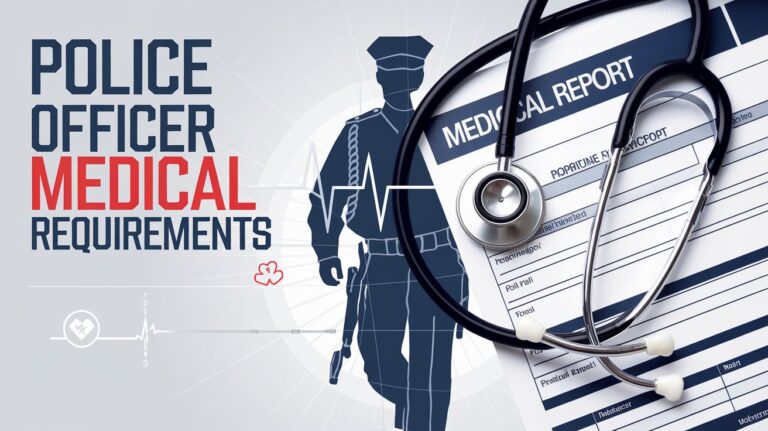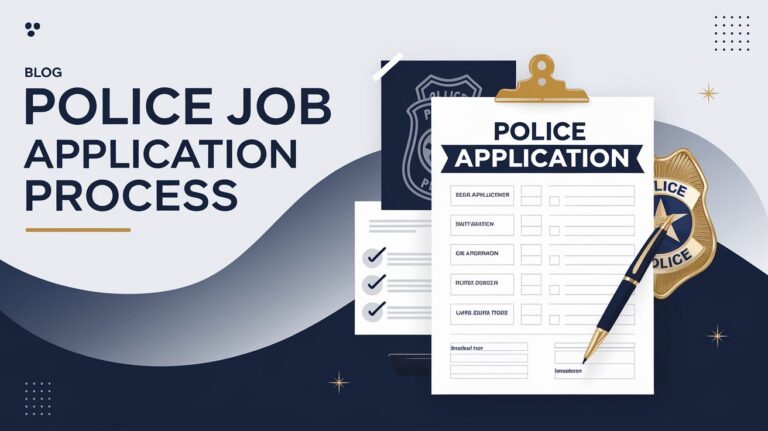How to Apply for Police Jobs Online: Step-by-Step Career Process
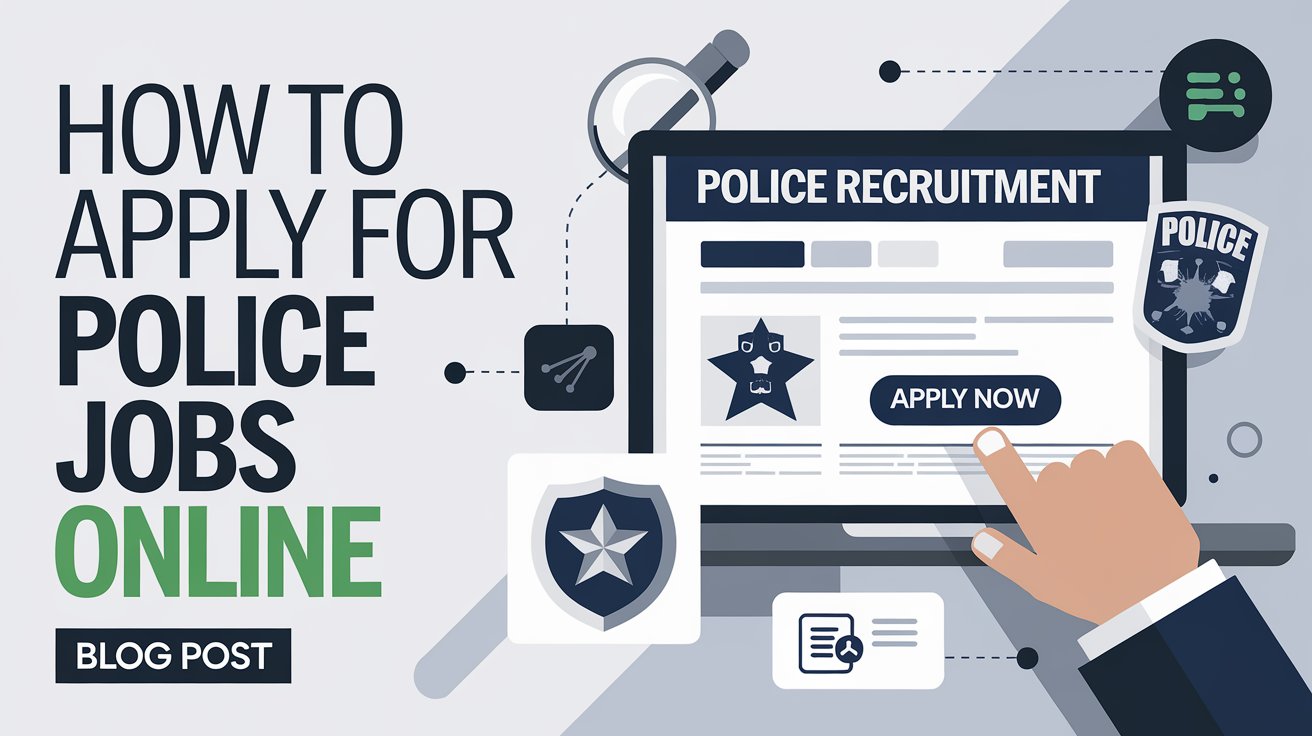
Exploring a career in law enforcement can be both fulfilling and rewarding. It offers the chance to serve your community and make a real difference. Yet, the online application process for police jobs is complex and detailed. It involves meeting educational standards, passing through physical and psychological tests, and showing unwavering dedication and perseverance.
This guide will cover the key qualifications, the detailed application steps, and the training needed to become a police officer. Whether you’re just starting out or looking to switch careers, we’ll provide you with the essential information. This will help you navigate the competitive landscape of online police job applications.
Essential Police Officer Requirements & Qualifications
To become a police officer, one must fulfill educational, physical, and legal criteria. Prospective law enforcement officers need to grasp these essential requirements. This knowledge is crucial for successfully completing police force online applications.
Educational Requirements
At least, a high school diploma or GED is required for police officer eligibility. Yet, many law enforcement qualifications prefer candidates with college degrees. Degrees in criminal justice, public administration, or police science are often preferred. Some positions may require a bachelor’s degree for entry.
Physical Requirements
Applicants must meet strict physical standards. This includes having 20/30 vision with correction and 20/100 without. They must also pass physical agility tests. These tests assess overall fitness, endurance, and strength, ensuring they can perform job duties effectively.
Legal Eligibility Criteria
- U.S. citizenship
- Minimum age requirement (typically 18-21 years old)
- No felony convictions
- Restrictions on misdemeanors involving perjury or false statements
- No dishonorable discharge from military service
Some departments might consider applicants with certain misdemeanors after a set time. For example, Durham, North Carolina, considers DUI convictions older than five years.
How to Apply for Police Jobs Online
Applying for digital police application process, online police recruitment, and other law enforcement job listings has become more efficient. To begin, create an online profile on the hiring agency’s website or government jobs page. This step allows you to submit your application electronically.
When searching for open police positions, carefully review the job announcements. It’s crucial to note any documentation requirements. Failing to submit all necessary materials can lead to your application being disqualified. You’ll need to attach relevant documents, such as your driver’s license, academic transcripts, and certifications.
- Apply promptly during recruitment periods, as some agencies cap the number of applications they’ll accept, such as 1,000 applicants.
- Expect to complete additional forms like a Personal History Questionnaire (PHQ) after your initial application submission.
The digital police application process simplifies the path to law enforcement careers. It makes it easier for qualified candidates to navigate the online police recruitment landscape and find their ideal law enforcement job listings.
Digital Police Application Process Steps
Applying for police jobs today is a streamlined process, thanks to online platforms and tracking systems. The first step is to create a detailed online profile on the agency’s job portal. This profile is the cornerstone of your application, enabling you to securely submit all required documents.
Creating Your Online Profile
When setting up your online profile, ensure the information about your education, work history, and certifications is current and accurate. You’ll also need to upload a resume and cover letter, as these are often required.
Document Submission Guidelines
- Driver’s license or government-issued ID
- Proof of education (diploma, transcript, or degree)
- FDLE Basic Abilities Test (BAT) scores (some agencies may waive this requirement for veterans or applicants with associate degrees or higher)
It’s vital to follow the agency’s guidelines for document submission. Ensuring you attach all necessary documents to your application is key to a successful submission.
Application Tracking Systems
Law enforcement agencies often use applicant tracking systems to track their hiring process. These systems allow you to monitor your application’s status, receive updates, and communicate with the hiring team. As you move through the stages, from orientation to interviews, being familiar with these platforms is essential.
| Key Police Application Process Steps | Estimated Timeline |
|---|---|
| Creating Online Profile and Submitting Documents | 1-2 weeks |
| Orientation and Physical Ability Testing | 2-4 weeks |
| Interviews and Examinations | 4-8 weeks |
| Background Investigation and Hiring Decision | 8-12 weeks |
The entire police application process can span several months. It’s crucial to remain organized, responsive, and proactive throughout the journey.
Pre-Employment Testing & Screening Phases
Becoming a police officer requires a thorough pre-employment testing and screening process. Aspiring law enforcement professionals must go through various stages. These include written exams, physical agility tests, and comprehensive background checks. These steps are crucial to ensure they meet the high standards for this critical public service role.
The police screening process starts with the National Police Officer Selection Test (NPST). This test evaluates applicants’ skills in arithmetic, reading comprehension, grammar, and writing. It’s a standardized exam used by law enforcement agencies nationwide to assess cognitive abilities of potential police officer candidates.
Alongside the written test, police officer testing includes physical agility assessments. These tests, such as sprints, vehicle pushing, wall climbs, and dummy drags, check physical fitness and endurance. High physical readiness is vital for the demanding tasks of a law enforcement officer.
The law enforcement background checks are also rigorous. Candidates face thorough investigations into their criminal records, driving history, and personal background. Psychological examinations, polygraph tests, and comprehensive medical exams with toxicology screenings are standard.
Some agencies use behavioral-based interviews as well. Candidates must provide detailed responses using the STAR (Situation, Task, Action, Result) method. These interviews evaluate problem-solving skills, critical thinking, and ability to handle pressure.
The pre-employment testing and screening phases aim to select only the most qualified and capable individuals. They ensure that police officers uphold the highest standards of professionalism and integrity in law enforcement.
Police Academy Training Requirements
In the United States, aspiring police officers must undergo rigorous training at a police academy before joining the force. The curriculum is designed to equip recruits with the knowledge, skills, and physical abilities needed for their duties. It prepares them to effectively serve as law enforcement professionals.
Basic Training Program Structure
Police academy training spans six months, with classes held Tuesday through Friday from 7 a.m. to 5 p.m. The program includes 770 hours of state-mandated courses. These cover a broad range of subjects like law, crime scene investigation, and patrol procedures. Other topics include criminal investigations, DUI/traffic stops, physical fitness, firearms, and vehicle operations.
Report writing, first aid, communications, and defensive tactics are also part of the curriculum. This comprehensive training ensures recruits are well-prepared for their roles.
Physical Training Components
Physical fitness is a key component of police academy training. Recruits engage in extensive physical training. This includes exercises, drills, and simulations to build strength, endurance, and agility. These skills are essential for the demanding tasks of a police officer.
Academic Coursework
Recruits also complete academic coursework alongside practical training. This enhances their knowledge of the legal system and investigative techniques. Some academies, like Springfield’s, offer General Study credits that are transferable for higher education. This allows officers to continue their education while serving.
Questions People Ask Most
What are the essential police officer requirements and qualifications?
To become a police officer, you need to fulfill several criteria. You must have a high school diploma or GED. Physical agility tests are also required. Age, citizenship, and criminal record checks are necessary.
How do I apply for police jobs online?
Applying for police jobs online starts with creating a profile on the hiring agency’s website. Look for open positions and attach all necessary documents. Make sure to submit your application quickly during recruitment periods.
What is the digital police application process like?
The digital application process for police jobs involves several steps. First, create an online profile. Then, submit required documents. Use application tracking systems to keep track of your application’s status. You may also need to complete a Personal History Questionnaire.
What pre-employment testing and screening phases are involved?
Pre-employment testing includes various phases. You’ll face written exams and physical agility tests. Oral board interviews and background checks are also part of the process. Psychological examinations, polygraph tests, and medical exams with toxicology screenings are further steps.
What are the police academy training requirements?
Police academy training lasts about six months. It covers 770 hours of state-mandated courses. You’ll learn about law, crime scene investigation, and patrol procedures. Training also includes criminal investigations, physical fitness, firearms, and vehicle operations.

